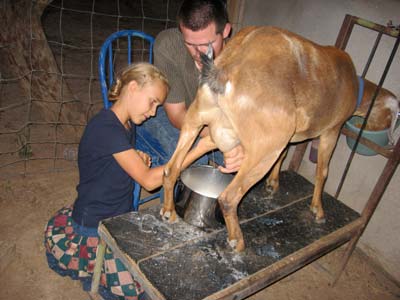KenSmith said:
It's certainly true that your behavior would be different if you had a 10-game schedule instead of one shot, but I think you have the risk backwards. A player who only gets to play once should be more conservative than one who will have multiple tries to win big.
I was thinking if a player is neither risk-averse nor risk-prone, he would just continue to play until the offer exceeds EV. Maybe? lol?
If I play it a million times to the end, I'm only going to end up with the EV I had at the beginning anyway no matter what they offer?
Just asking - if i could play it a million times, I'd take the 2nd offer everytime no matter how much below EV it was lol. Maybe even the when I could only play it once lol.
My over/under side bet would be The Wise One would be outta there on the first offer lmao.
KenSmith said:
The concept of CE applies here once the offer is large enough to be "big money" in your view. Let's say you have three cases left $1M, $1000 and $1. The EV is $1001001/3 or $333367.
If the banker offers me $320K, I'm taking it. It's not worth an extra $13,367 of EV for me to risk $320,000 to continue.
In truth, the game is more complicated than that because in the times I've seen it, it appears that the banker offers can be MORE than EV late in the game. That means that I could be turning down more than an extra $13,367 in the example above because of a possible over-offer when only two cases remain. (Maybe they would offer $510,000 when only two cases remain for example.) If the details of how the offers are calculated is available anywhere that would have to be factored in.
This CE stuff always confuses me a little - would it be legit to assume I should take my total wealth into considerastion rather than just the money I might win on the show? If I'm a multi-millionaire going in, I guess I'd "gamble" more because the money would mean so little to me?
Not to mention I guess the reality of a higher tax bracket could logically make one more "risk-averse" than if taxes were not a consideration?
Anyway, what would you think could possibly make the banker of the show offer higher EV at the end? If he wants to make a player play as short as possible and win as little as possible, he wouldn't do it, would he?
If he's a risk-averse banker, scared sh*tless about possibly paying out $1MM, he offers more to cut his losses and settle out-of court so to speak lol.
It is assumed, unlike Monty, the player, the host and the banker have no idea how much is in any case at the beginning?
Maybe, it's like you suggest, the bank is sizing up the risk-level of the player along the way and making an offer accordingly, like maybe like poker when you are playing the player, not the house.
Like, if they read here, and knew FLASH was the next contestant, they'd know the calculations he can make in but a few seconds and offer him exactly EV so he'd be indifferent and take the offer.
They'd offer me $10K with an EV of $150K at the first chance guessing I might even possibly know that but still would take the offer knowing what a balless pathetic gambler I am and get over on me.
They'd offer Inplay way higher offers than EV at every step of the way but it wouldn't matter because he's going for broke no matter what they do :grin:

 .
.



